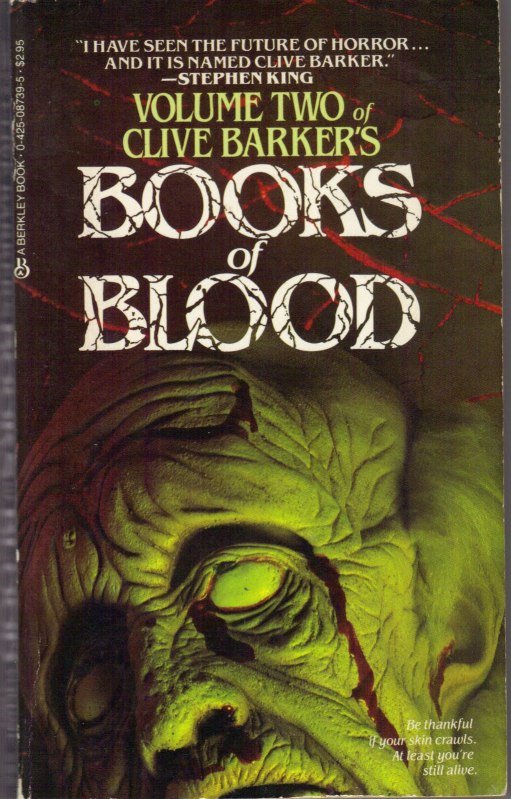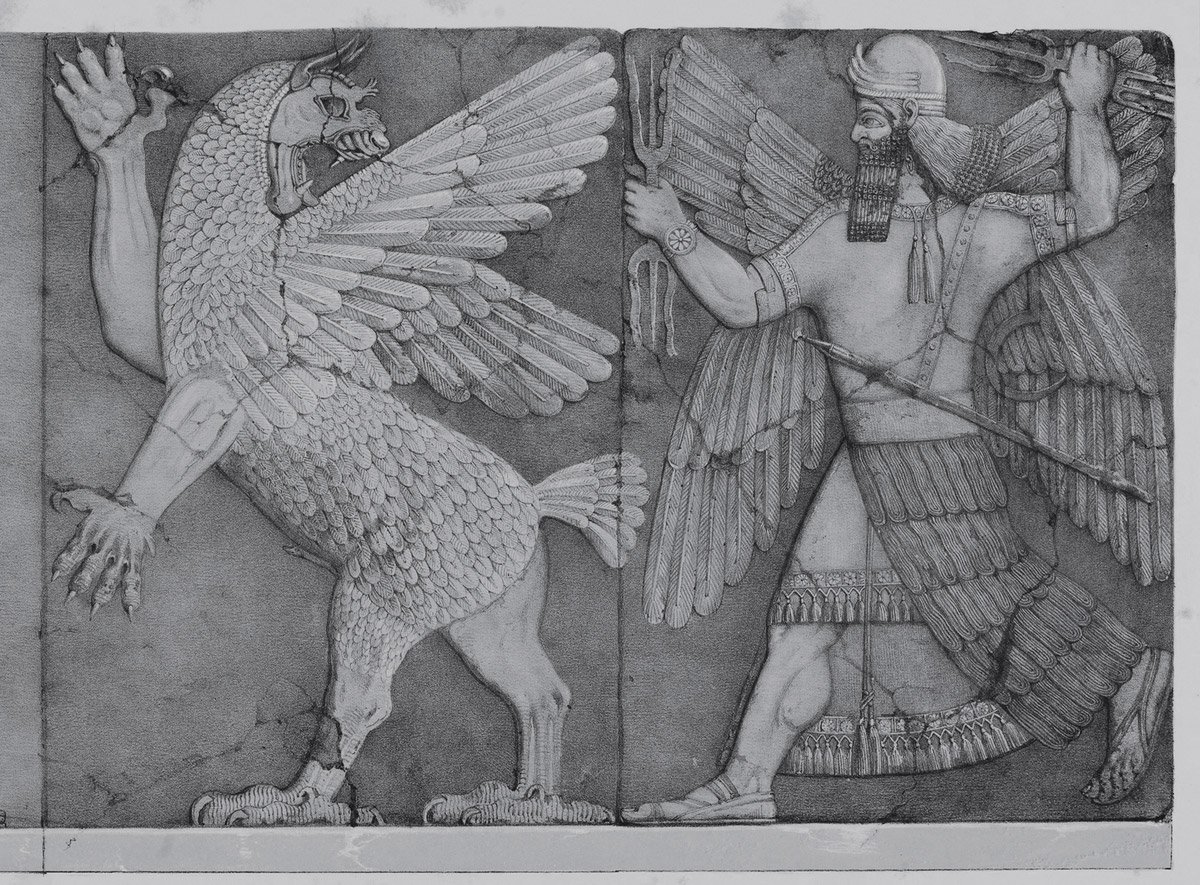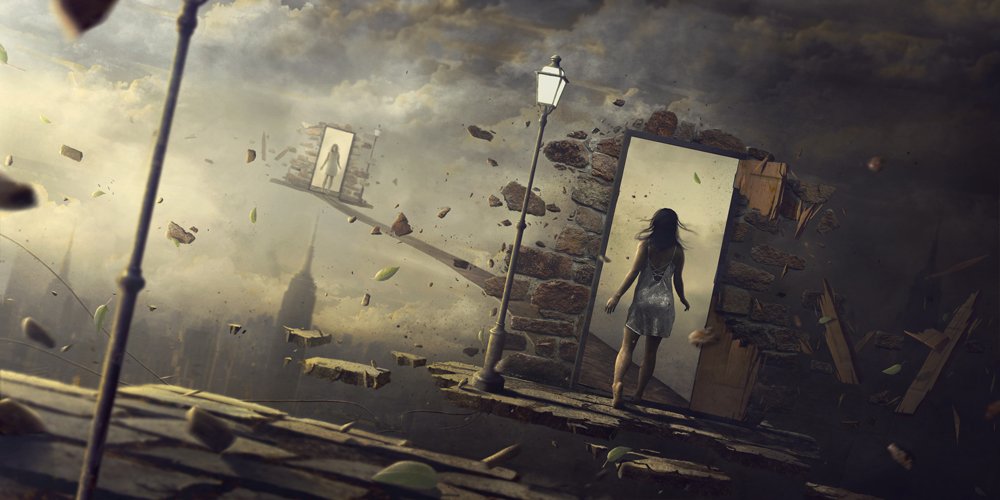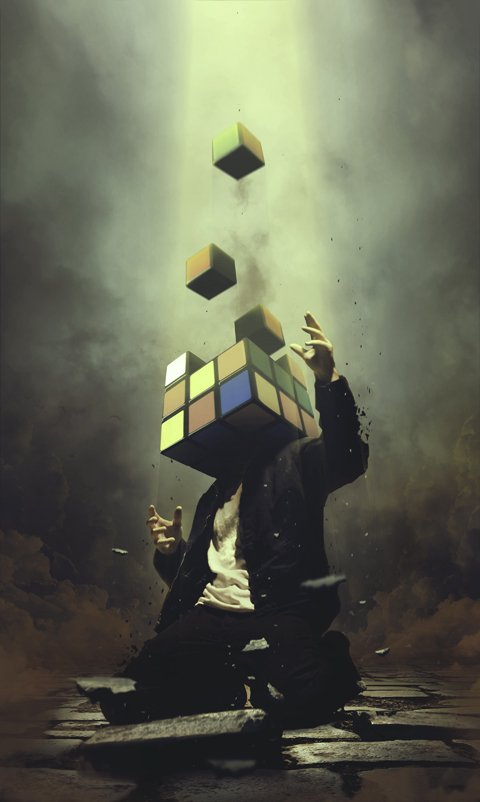
When I was an adolescent, I read novels voraciously, and the genre of sword-and-sorcery fantasy appealed to me most. It combined supernatural magic, an element seeded into countless cultures and religions, with heroic warriors and monsters, and it allowed me to escape the doldrums of my unremarkable suburban environment. As I grew out of my teens into adulthood, a different type of fantasy fiction began to appeal to me: the horror genre. Writers like Stephen King and Clive Barker wrote engrossing novels that, on the surface, seemed like realism, but they typically possessed a paranormal component. After all, in a post-industrial world ruled by the scientific method, what could be more horrific than something inexplicable like an undead zombie or an immortal angel?
Fantasy fiction traces its roots to ancient stories of creation as well as the myths and legends of primitive cultures, and when you listen to those stories, they often sound as strange and queer as nighttime dreams; just consider the epic battle of Tiamat versus Marduk that resulted in the creation of all land from Tiamat’s fallen body. And anyone familiar with the New Testament might well think that the Revelation of John sounds more like the disjointed imagery of a dream than the symbolic messages inspired by a vision (I’d like to try some of whatever that guy was smoking). Meanwhile, the riddle of our own dreams, a playground for the bizarre and the ridiculous, can give birth to some excellent writing, and I believe dreams go hand-in-hand with good fiction.

One component of dreams that I find particularly compelling is the wealth of original ideas and images that arise from them. You could argue that our brains are simply jumbling together unrelated pictures as a means to express our subconscious longings or fears, but I find that uniquely disquieting images result from the process. For example, I once dreamt of a wide flight of stairs with a handrail that crossed the stairs at a diagonal from right to left; so instead of helping me, the handrail actually blocked my passage as I went up. I can honestly say I have never seen such a flight of stairs – why would anybody build them? But the idea of stairs that block your passage or a door that opens to a wall is intriguing and can be a potent symbol to add to your writing.
Meanwhile, the practice of interpreting your own dreams can help you understand the way your subconscious mind works and may lead you to personal insights that affect your writing. Once, when I was a college student, I dreamed of being pursued on my bicycle across campus by a ninja hurling shurikens. After a brief, harrowing chase, I somehow evaded my ninja pursuer and ended up at a bus station inside the student center. I then got off my bicycle and boarded a bus for an unknown destination. While the images do not really relate to each other, I interpreted the dream by relying on an archetype I encountered in a guide to dreams: being pursued in a dream can mean being rushed into a decision. And of course, a bus station is symbolic of leaving for a new destination or a journey, and at the time, I was considering dropping out of college. Sometimes interpretations seem obvious, but other times they may elude us.
Regardless of interpretation, you may find that your dreams are often difficult to recall in the first place, and unless a dream has a powerful emotional punch, you are likely to forget it by the time you rise from bed. To illustrate, think about nightmares and how the power of fear helps us remember them; some people recall their nightmares more readily than their dreams, and it’s interesting that we have a separate word for them when they are nothing more than frightening dreams. Still, if you follow a simple practice of waking immediately from a dream and recording as much as you can remember (use paper and pen or even a voice recorder), your effort can yield some solid inspiration for your writing.

I investigated the practice of dream-journaling as a way to peek into my subconscious, and after a while of forcing myself to arise and record my dreams (that was the hard part), I had a small notebook filled with interesting if not peculiar stories. It probably helped that certain psychotropic medications are known to cause vivid dreams, and I enjoyed that particular side effect of my antidepressants for a couple of years. But I also developed a habit of waking briefly from my dreams to inject some direction and nudge them into telling more coherent stories when I fell asleep again. It’s taken some practice, but over the years I have honed this skill; and though I no longer keep a dream journal, I still have dreams that I can recall first thing in the morning and that sometimes set me to typing.
In fact, the best sex I ever had occurred in a recent dream, but it wasn’t exclusively an erotic dream – it was more of a conceptual dream that had an erotic appeal. Like most of my dreams, it took place in a typically twisted fairytale land, but this one approached the concept literally: there were actual fairies attending a university for elves, goblins and pixies. I was a young, prospective student visiting the school and was walking the grounds when a particularly grotesque student/fairy began a violent tantrum. It appeared as a shrieking monster with a globular central body that radiated tentacles with eyes, teeth and other menacing appendages.
A member of the college staff, a professor perhaps, stood to the side observing the incident, and though he initially appeared in human form as a tall man, he changed his shape to resemble the tentacled monster and then confronted the rampaging student. The struggle came to a quick end when the professor snipped off a strange eyestalk from the young monster’s body (its Achilles’ heel). In a flash, the beast became a comely, young man — naked — who collapsed on top of me. Apparently, this was a coming-of-age ritual, and it was a metamorphosis from nymph to adult for that particular species of fairy.
The young student, inhabiting a newly minted human body, was understandably distraught by the transformation and asked the professor: “Now what do I do?”
Unflustered by the scuffle, the teacher cannily replied, “I think there’s somebody right below you who can answer that question.”
At this point in my dream, I woke up and thought briefly about how I would like to continue the story, and as I went back to sleep, I enjoyed the best sex I never had.
I realize it’s easy to focus on the erotic aspect of this dream, but following that, it was the concept that appealed most to me: teaching an alien life form the ins and outs of the human body as well as the various emotional experiences of being human. The premise combines the ideas of celebrating the sensory pleasures of a new life, in the way a young child delights in a butterfly or marvels at a rainbow, with the appreciation and insight born of a sensitive intellectual. All sorts of writers have explored this idea in cinema and storytelling, and the current fad seems to be stories of artificial intelligence arising in computers and the conundrum of their rights as sentient beings. But as far as archetypes go, fairies, aliens and sentient computers are essentially the same: they’re all forms of non-human intelligence. Conceptually, they pique our curiosity, and as the explosion of fantasy sub-genres within the world of romance writing can attest, werewolves, vampires and fairies readily add spice to just about any work of fiction.
If you are a fiction writer but have never considered the fantasy genre, you might look to your own dreams for inspiration. Fantasy writing can be as simple as imagining some strange twist on the human condition and then elaborating on its consequences. Dreams, of course, are frequently allegories for real-life situations, and my own dream above is rife with possible interpretations that I shall tactfully avoid explaining. And remember that as a literary device, dreams can add foreshadowing to your story since they are often assigned the power to presage events. They can even inject dramatic irony into your story: the audience might understand the significance of a character’s dream while the character still lacks awareness. So I hope you are motivated to try recording your dreams and incorporating them into your writing, and I wish you pleasant — if not productive — dreams.
– Spriggan Radfae
Virginia native and Radical Faerie at large.

Share this post with your friends.
